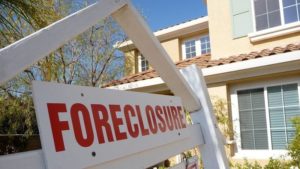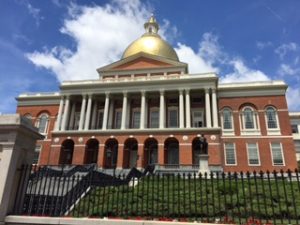MAAPL Coordinator Grace Ross has issued an update to our previous post on Massachusetts state court cases being postponed. Court case deadlines have been postponed for another month until July 1, 2020 for all non-emergency or lower-priority matters.
Today, May 26, 2020, the Massachusetts Supreme Judicial Court (SJC) published a new COVID-related order.
The key points are that the courts will physically remain closed, although the clerks are there doing business. If you need to reach them you can call, email, etc. Because of the further extension of deadlines, courts expect to hold more non-emergency hearings virtually than they did previously. (They do not expect this delay to be extended any farther than July 1–unless, God forbid, the pandemic starts getting worse again.)
What you need to know:
1. The Massachusetts moratorium on evictions and foreclosures continues to be in place, and any roles the courts play in that will continue (they mention that directly in the guidance for the first time.) That means summary process/eviction cases are stayed.
A. We are keeping in touch with the courts because of the possibility of misinterpretation. We are deeply concerned about this specifically regarding the moratorium we fought for. It was meant to stop evictions. That should not stop your ability to use the courts to protect against an eviction. We are reaching out to the courts (and if necessary, will bring in our Legislators) to clarify the purpose for putting a stay on eviction cases in the courts.
2. If you have any kind of deadline for a court filing or a tracking order (for instance, a set of dates that say discovery will be due on this date, motions will be due on that date), those are all stayed until July 1.
A. If you had a deadline of, let’s say, 30 days, and the clock on that deadline was supposed to start before March 17, you can figure the new deadline this way: it will be whatever number of days occurred before March 17, and then the clock stops. On July 1 the clock will start again. So you’ll have the remainder of whatever 30 days had not gotten used up by March 17. That will become your new deadline in July.
B. If the other side was supposed to get you something on a court tracking order by a certain date, and their date is now moved to July 1 and your date was after that, you need to figure out the number of days between their deadline and your responsive deadline after that. Then imagine counting your deadline as counting the same number of days after July 1.
3. All jury trials in civil matters will not commence before September 8. All bench trials on the civil side scheduled for any time up to June 30 are now continued to a date no earlier than July 1, 2020.
If you have trouble figuring out when things are due, please be in touch with MAAPL and we’ll help you work out the answer.
We have two concerns:
1. If anyone is trying to pressure or intimidate you, or otherwise deter you from fighting your case in court. All of that is illegal. If they show up on your property that’s still trespassing, and we will use the court to enforce against any of these actions. So let us know if you are experiencing such things.
We are concerned if you need to take action to defend yourself, and that could include emergency needs such as a code violation in your home. Again, let us know, and we’ll make sure you can file in court.
2. Virtual hearings – It is possible that some courts may decide to hold a hearing because they’re trying to get through some of their non-emergency business, which may affect you if you have a case that’s a non-emergency matter sitting idle right now in the courts. They can try to hold such hearings virtually (not for eviction or foreclosure because of the state moratorium, but for other cases).
This deeply concerns us because pro se folks have reported to MAAPL having a harder time doing things by telephone or over the Internet rather than being present in the courtroom. This is a constitutional due process issue, and you should be protected from such a hearing.
If you are not as effective virtually as you would be in person, the courts say (under number three of the 5-26-20 order) that in-person proceedings will be conducted “only where entry to a court house is required to address matters that cannot be resolved virtually,” and they give two reasons why: either “because it’s not practicable or would be inconsistent with the protection of constitutional rights.”
Your right to your home, whether it’s possession or ownership (that is, the right to occupy and not be evicted, or for instance, a foreclosure), is a constitutional right, and your right to protection through the courts of those constitutional rights is separately also a constitutional right.
So, if a telephonic hearing or a virtual hearing makes you less effective, you should refuse it. If they try to hold such a hearing and it’s not working for you, you should register a complaint right then, and ask that the hearing be rescheduled for an in-person hearing. It’s critical that you put such an objection on the record in the court during the virtual hearing because it’s a constitutional due process violation if you are in any way weaker or less able to function, or handicapped by the fact that the hearing is being held virtually.
Please keep checking back here on MAAPL’s home page. We will continue posting updates on this situation regarding court schedules and related matters.
 ible decision and travesty has been delivered by the Massachusetts Supreme Judicial Court (SJC); since this predatory lending surfaced in 2008, the SJC has focused its job as simply upholding our laws; with decisions, of course, that have overwhelmingly meant protecting homeowners.
ible decision and travesty has been delivered by the Massachusetts Supreme Judicial Court (SJC); since this predatory lending surfaced in 2008, the SJC has focused its job as simply upholding our laws; with decisions, of course, that have overwhelmingly meant protecting homeowners.
 On July 14, 2020, MAAPL and Bring Our Wealth Home! (BOWH) submitted an amicus brief in the reconsideration case Bank of New York Mellon… v. Alton King Jr. and Terri A. Mayes-King.
On July 14, 2020, MAAPL and Bring Our Wealth Home! (BOWH) submitted an amicus brief in the reconsideration case Bank of New York Mellon… v. Alton King Jr. and Terri A. Mayes-King. Bring Our Wealth Home! is a project of the Mass. Alliance Against Predatory Lending (MAAPL) — working to reverse illegal predatory loans and foreclosures and the damage they have created. This project highlights the impact of the foreclosure crisis on Black and Brown families and communities, and supports and promotes the leadership of Black and Brown people in the fight to gain justice and return stolen wealth to their communities.
Bring Our Wealth Home! is a project of the Mass. Alliance Against Predatory Lending (MAAPL) — working to reverse illegal predatory loans and foreclosures and the damage they have created. This project highlights the impact of the foreclosure crisis on Black and Brown families and communities, and supports and promotes the leadership of Black and Brown people in the fight to gain justice and return stolen wealth to their communities. In historic legislation signed by the Governor yesterday, we got a blanket Moratorium on foreclosures and all evictions, except where the occupant has committed a criminal act that endangered others. This law appears to be in effect for 120 days, or 45 days after the Governor declares the crisis over.
In historic legislation signed by the Governor yesterday, we got a blanket Moratorium on foreclosures and all evictions, except where the occupant has committed a criminal act that endangered others. This law appears to be in effect for 120 days, or 45 days after the Governor declares the crisis over.